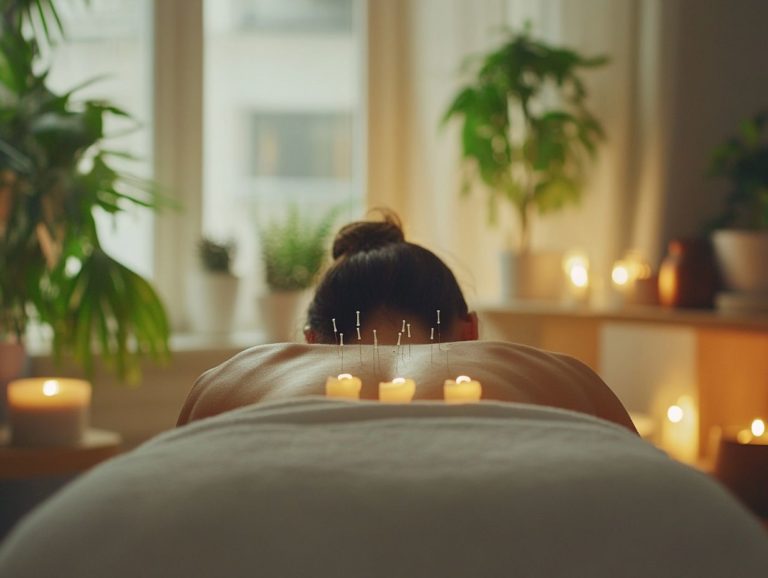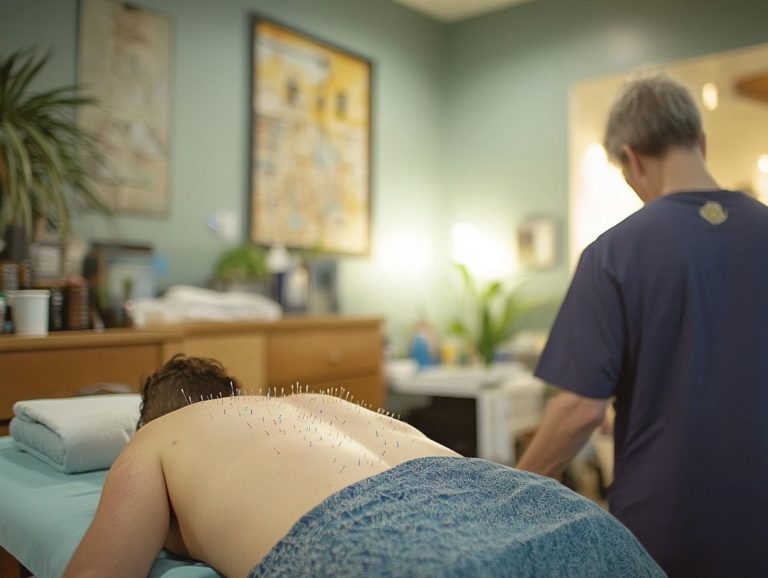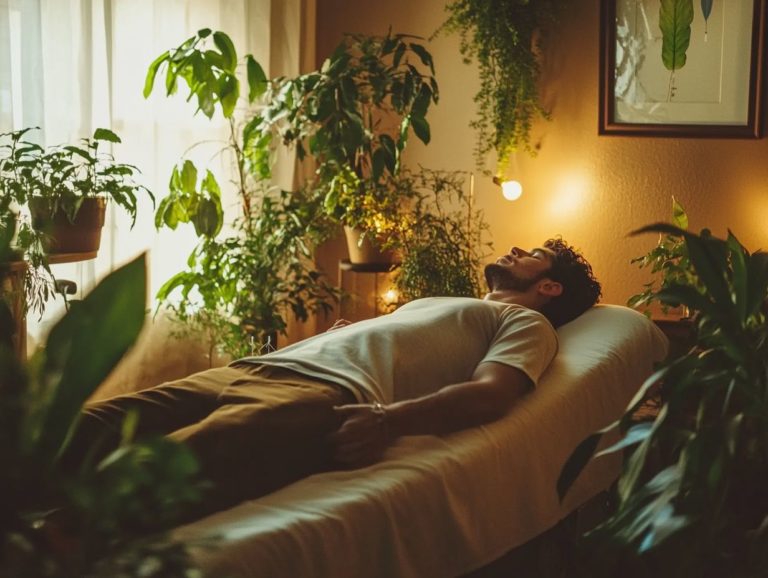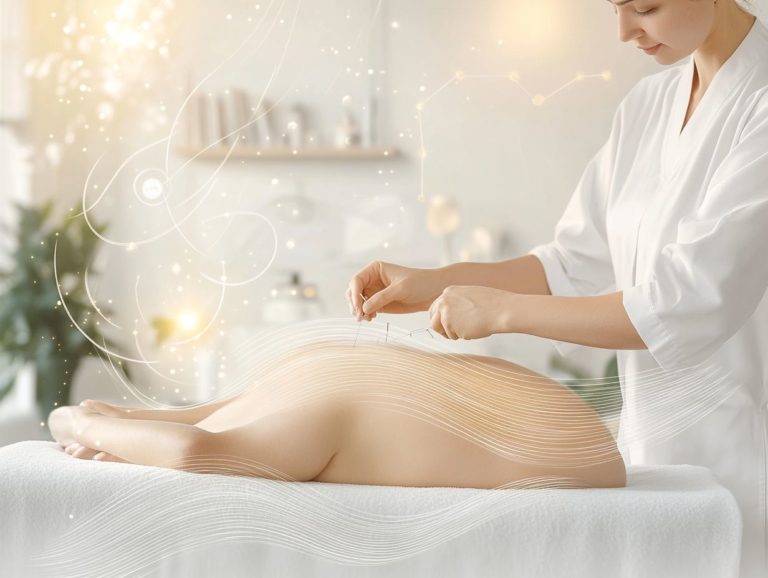Acupuncture for Insomnia: Can It Help You Sleep Better?
Struggling with sleepless nights? You re certainly not alone. Insomnia can be a frustrating condition that impacts both your physical and mental well-being.
This article explores acupuncture as a potential remedy for insomnia, explaining how this ancient practice works and its effectiveness in fostering better sleep.
You’ll find a comprehensive breakdown of the causes and symptoms of insomnia, what to expect during an acupuncture session, and other natural remedies to consider.
Dive in to uncover how you can reclaim those restful nights!
Contents
- Key Takeaways:
- The Basics of Acupuncture
- Insomnia: Causes and Symptoms
- How Acupuncture Can Help with Insomnia
- What to Expect During an Acupuncture Session
- Other Natural Remedies for Insomnia
- Frequently Asked Questions
- 1. Can acupuncture really improve my sleep if I suffer from insomnia?
- 2. How does acupuncture work to improve sleep?
- 3. Is acupuncture safe for treating insomnia?
- 4. How many acupuncture sessions will I need to see improvement in my sleep?
- 5. Are there any side effects of acupuncture for insomnia?
- 6. Can acupuncture help with other sleep-related issues besides insomnia?
Key Takeaways:
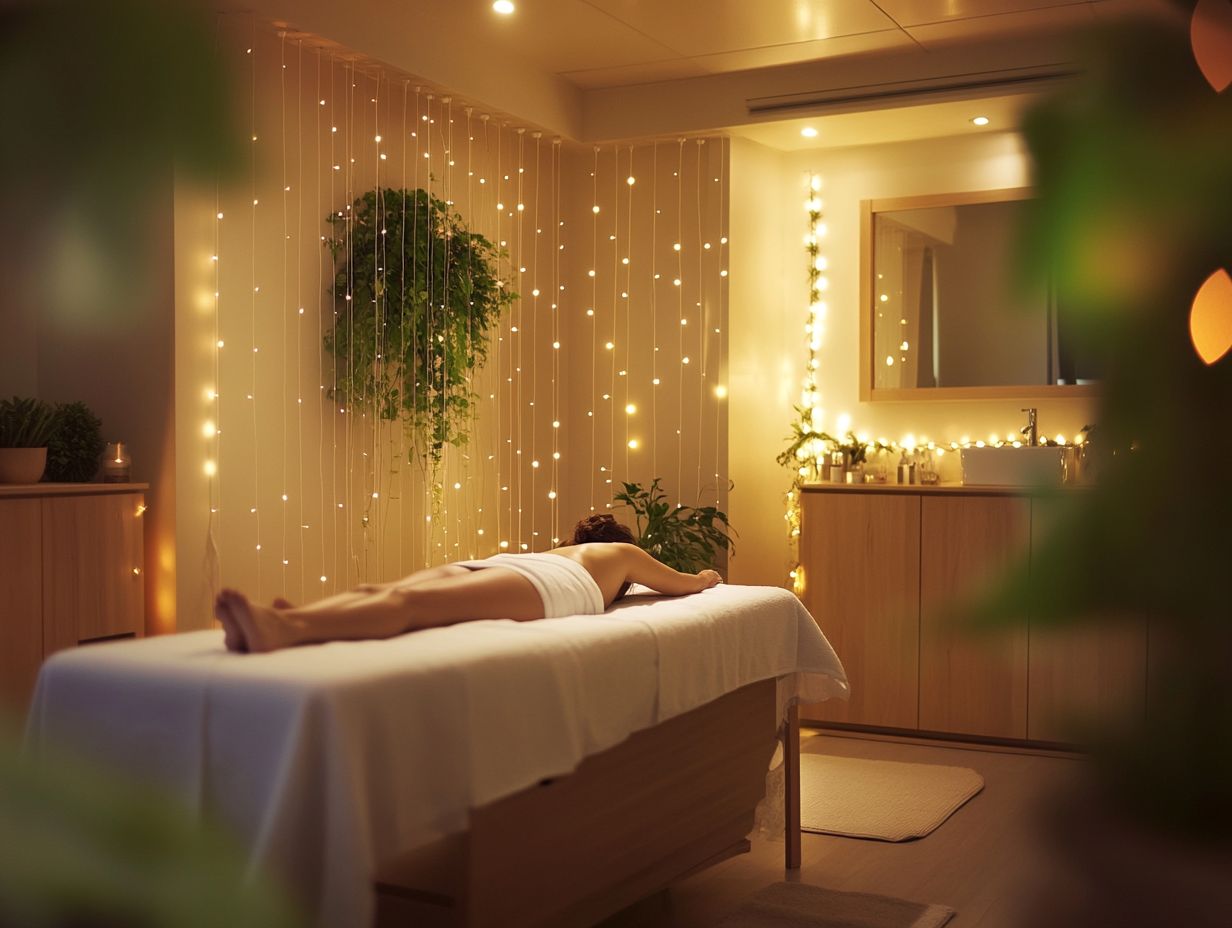
Acupuncture is a popular alternative therapy for insomnia that involves inserting thin needles into specific points on the body. This promotes relaxation and improves sleep. Research shows that acupuncture can effectively treat insomnia, with many studies reporting improvements in sleep quality, duration, and reduced symptoms of anxiety and depression. Natural remedies and lifestyle changes, such as exercise and relaxation techniques, also improve sleep quality.
The Basics of Acupuncture
Acupuncture, a cornerstone of traditional Chinese medicine, entails stimulating specific pressure points, known as acupuncture points, along meridians to restore balance and enhance your body’s energy flow.
By focusing on these points, practitioners aim to alleviate various health concerns, fostering overall well-being and relaxation.
This time-honored healing technique is gaining recognition for effectively addressing chronic pain, stress, and sleep disorders. It offers a compelling option for those seeking holistic health solutions.
What is Acupuncture and How Does it Work?
Acupuncture is a gentle treatment where fine needles are skillfully inserted into specific pressure points. This stimulates the flow of energy, known as Qi, along meridians in your body. This ancient practice aims to restore balance and enhance your overall well-being.
When these needles are precisely positioned, they can trigger various physiological responses that positively impact both your physical condition and mental state.
Research shows that acupuncture can modulate your nervous system, promoting the release of neurotransmitters and hormones essential for pain relief and stress reduction.
Studies indicate that acupuncture may alleviate symptoms related to chronic pain, anxiety, and digestive issues by improving blood circulation and stimulating your body’s natural healing processes.
Insomnia: Causes and Symptoms
Insomnia is a common sleep disorder that manifests as difficulty in falling asleep, staying asleep, or waking up too early. This often results in daytime fatigue and a host of other health complications.
The Centers for Disease Control and Prevention report that a substantial segment of the population grapples with insomnia. This condition can contribute to various issues, including anxiety, depression, and chronic pain.
Understanding the causes of insomnia is crucial for regaining restful sleep don t wait any longer! Recognizing the symptoms and underlying issues allows for effective treatment and management, enabling you to reclaim peaceful nights and rejuvenated days.
Understanding the Condition
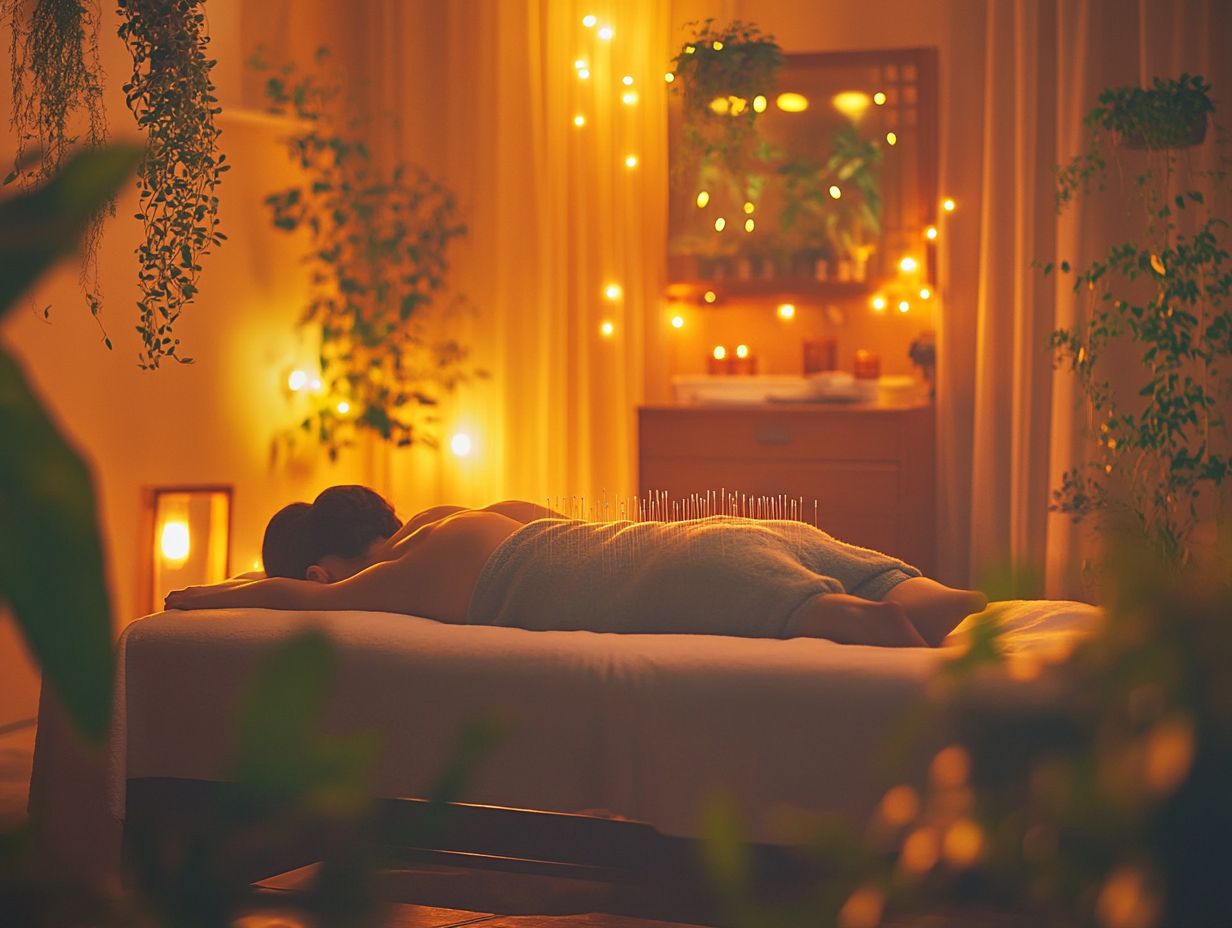
Recognizing insomnia is the first step to reclaiming your nights. This disruption can severely impact your sleep quality and heighten the severity of the condition.
Insomnia can present itself in various forms, such as acute or chronic insomnia, each affecting your daily life in unique ways.
You may find it difficult to focus at work, maintain relationships, or enjoy leisure activities due to persistent fatigue and irritability. Factors like stress, anxiety, and specific medical conditions can worsen this sleep disorder, making it essential to identify your personal triggers.
Seeking medical advice is vital. Professionals can offer accurate diagnoses and recommend tailored treatments that address both the symptoms and underlying issues, setting the stage for improved overall health and well-being.
How Acupuncture Can Help with Insomnia
Acupuncture offers a great alternative for better sleep, presenting a holistic approach that targets root causes like anxiety and stress.
By incorporating relaxation techniques, it effectively enhances your overall sleep quality, allowing you to achieve a more restful and rejuvenating night.
The Science Behind its Effectiveness
The science behind acupuncture s effectiveness in treating insomnia is compelling. Research highlights its ability to balance brain chemicals that affect sleep, such as melatonin, serotonin, and GABA. These are essential players in regulating sleep disturbances.
This delicate balance not only promotes the onset of sleep but also plays a crucial role in maintaining deeper sleep cycles, which are vital for your overall health and well-being.
Numerous studies illustrate how acupuncture can quiet an overactive mind, a common obstacle to restful sleep. Clinical trials show that patients undergoing acupuncture report a significant reduction in insomnia symptoms, underscoring the impact of acupuncture on sleep disorders and its potential.
The interplay of these brain chemicals is critical. By fostering their balance, you might discover more regular sleep patterns that improve your mood and enhance cognitive function.
What to Expect During an Acupuncture Session
During your acupuncture session, a skilled practitioner will apply gentle pressure to specific points tailored just for you.
This approach addresses your individual needs and cultivates a uniquely relaxing atmosphere, enhancing your overall well-being.
The Process and Potential Side Effects
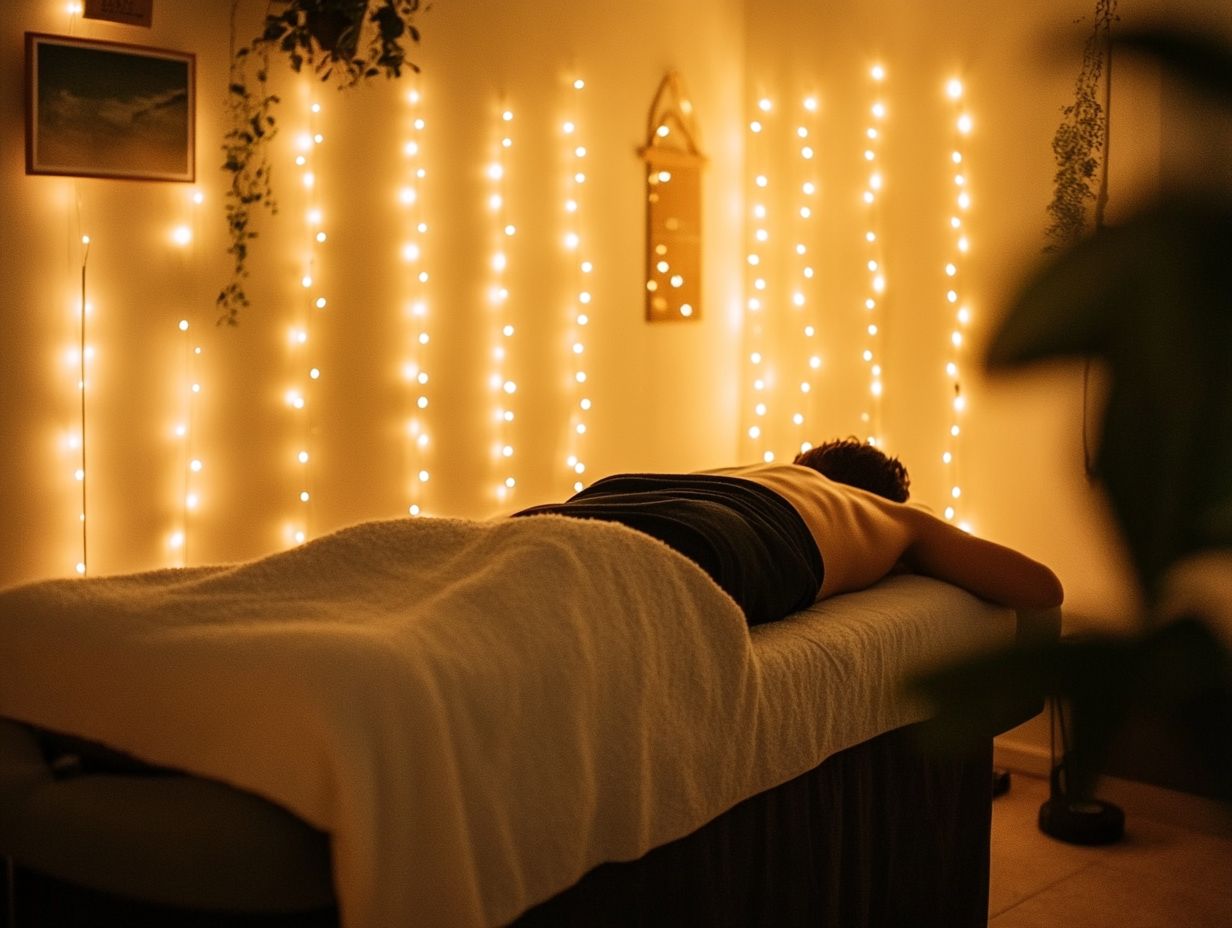
Acupuncture involves a few key steps, including an initial assessment, needle placement, and sometimes techniques like moxibustion or electroacupuncture to ease muscle tension.
First, practitioners conduct a comprehensive evaluation of your medical history and current symptoms, blending traditional methods with modern diagnostic tools. This personalized approach ensures your treatment is finely tuned to your unique needs.
Once your treatment plan is in place, tiny needles are meticulously inserted at strategic acupuncture points to stimulate your body’s energy flow. You might also experience complementary techniques, like gentle warming with moxibustion or mild electrical stimulation via electroacupuncture.
It’s important to note that while most people find acupuncture very helpful, you may experience common side effects like brief soreness or light bruising. To minimize these, ensure that the needles are administered by certified professionals and maintain open communication about any discomfort for a safe experience.
Other Natural Remedies for Insomnia
In addition to acupuncture, many natural remedies can help with insomnia.
By enhancing your sleep hygiene, establishing a consistent sleep schedule, and incorporating relaxation techniques, you can significantly improve the quality of your sleep.
Complementary Therapies and Lifestyle Changes
Complementary therapies and lifestyle changes are essential for managing insomnia. Utilizing herbal supplements alongside cognitive behavioral therapy can effectively address sleep disturbances.
When you combine these approaches, you’ll likely notice a significant improvement in your sleep quality and overall well-being. Techniques such as mindfulness meditation and yoga help calm the mind and reduce anxiety, making it easier to drift off.
Incorporating specific dietary changes, like cutting back on caffeine and sticking to a consistent eating schedule, can greatly enhance your body’s natural circadian rhythm.
Herbal supplements like valerian root and chamomile are gaining popularity for their soothing properties, offering a natural remedy for those who find restful slumber elusive.
By integrating these various therapies, you can adopt a holistic approach to tackling insomnia.
Frequently Asked Questions
1. Can acupuncture really improve my sleep if I suffer from insomnia?
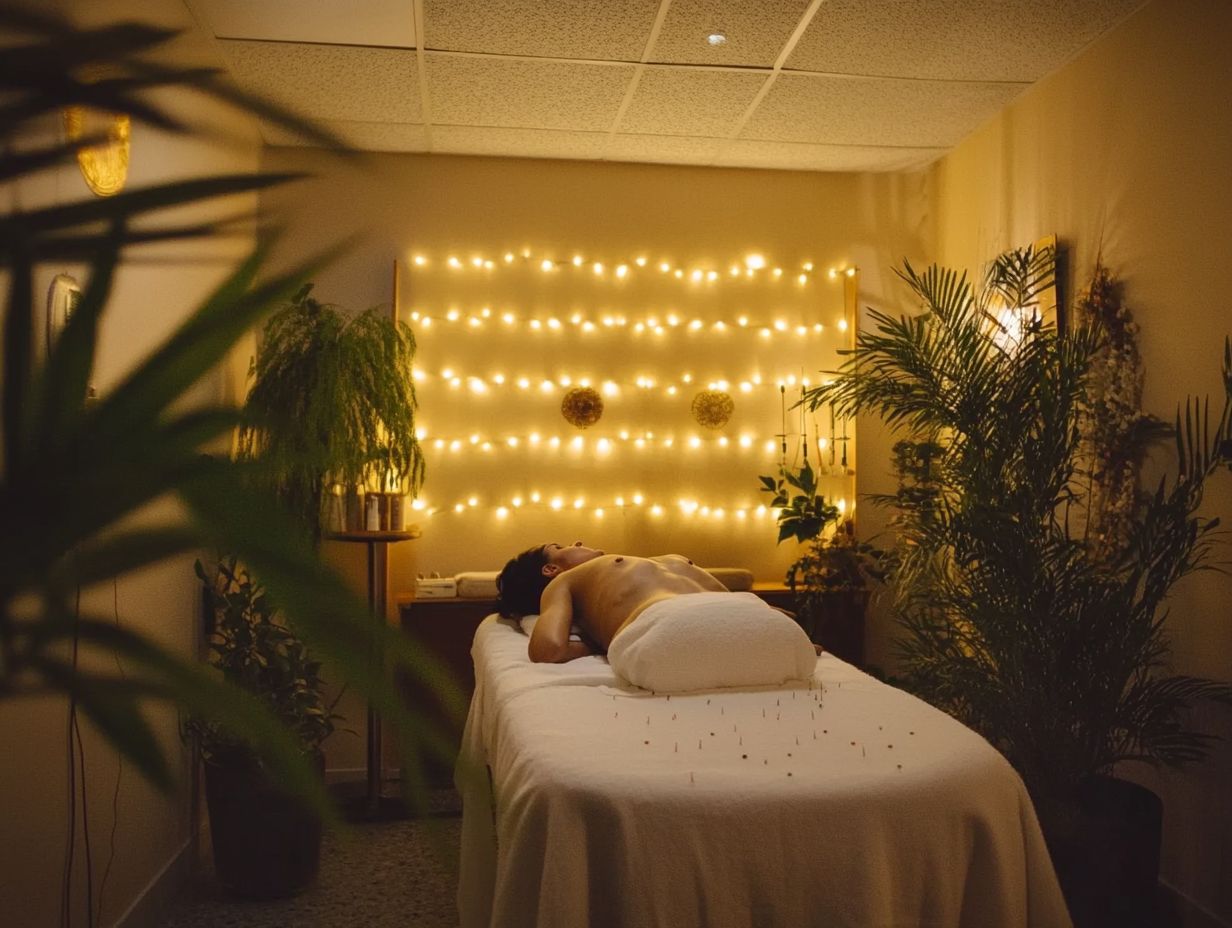
Yes, acupuncture can effectively treat insomnia and may also be beneficial for anxiety. It helps regulate your body’s sleep cycle, promoting deeper and more restful sleep. For more information, check out if acupuncture can help with anxiety.
2. How does acupuncture work to improve sleep?
Acupuncture uses thin needles inserted into specific points on your body. These points stimulate energy pathways, which balance your body’s energy and encourage relaxation.
3. Is acupuncture safe for treating insomnia?
Yes, acupuncture is safe when performed by a trained practitioner. The needles are sterile and disposable, reducing infection risks. Always discuss any health issues with your acupuncturist before starting treatment.
4. How many acupuncture sessions will I need to see improvement in my sleep?
The number of sessions varies per individual, depending on the severity of insomnia. Some may notice changes after a few sessions, while others may need more. Communicate with your acupuncturist and follow their recommended plan.
5. Are there any side effects of acupuncture for insomnia?
Most people feel no side effects, but you might experience slight bruising or soreness where needles were inserted. These effects are usually minor and go away quickly. Let your acupuncturist know if you feel any discomfort.
Yes, acupuncture can help with various sleep issues like:
- Sleep apnea
- Restless leg syndrome
- Jet lag
It also alleviates stress and anxiety, contributing to better sleep.
Unlock better sleep now by consulting an acupuncturist!


